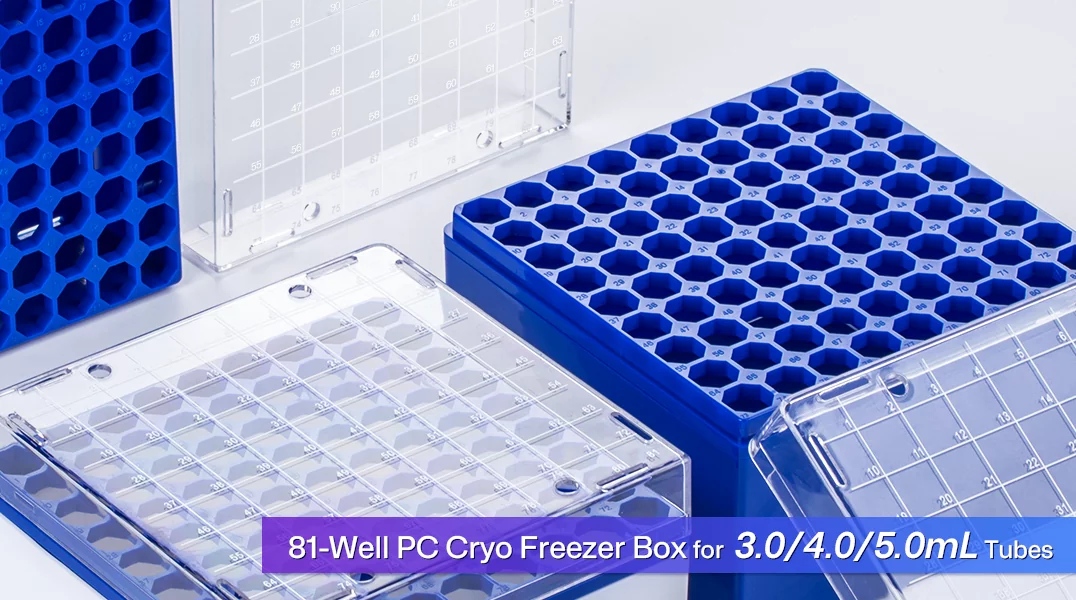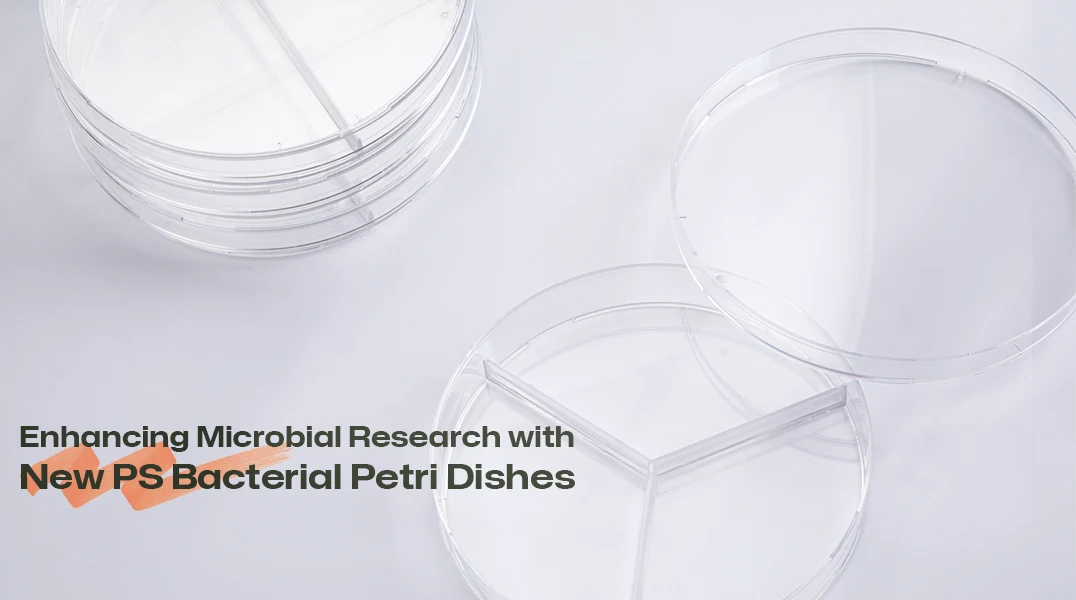GenFollower has launched a high-performance PC cryo box designed for laboratory use. Made from polycarbonate (PC), it supports an extensive temperature range from -196°C to +121°C, making it suitable for the long-term storage of biological samples, cells, and other sensitive materials. With excellent sealing, durability, and a design that facilitates sample management, this cryo box offers a reliable and efficient storage solution for laboratory professionals.
Key Features
- Wide Temperature Range: Supports ultra-low temperature storage from -196°C to +121°C, suitable for liquid nitrogen environments, meeting diverse laboratory requirements.
- Anti-Condensation Design: Ventilation holes on the upper layer and drainage outlets on the lower layer help reduce condensation, ensuring a dry storage environment.
Available Specifications
The newly launched PC cryo boxes are available in three capacities to suit different laboratory needs:
81-Well Cryo Box: Compatible with 3.0mL, 4.0mL, and 5.0mL tubes, offering flexibility across various applications.
Each cryo box is individually packaged for immediate use, reducing the risk of cross-contamination. Designed for research institutions, hospital laboratories, and biotechnology companies requiring ultra-low temperature sample storage, the product is now available for purchase. For inquiries, please contact our sales team at GenFollower@GenFollower.
GenFollower remains committed to expanding its product range and developing additional cryo box options to meet the evolving needs of laboratories. If you have specific requirements or customization requests, please do not hesitate to get in touch—we will be pleased to assist.
Recent Posts
GenFollower 81-Well PC Cryo Freezer Box for 3.0/4.0/5.0mL Tubes
GenFollower has launched a high-performance PC cryo box designed for laboratory use. Made from polycarbonate (PC), it supports an extensive temperature range from -196°C to +121°C, making it suitable [...]
Enhancing Microbial Research with New PS Bacterial Petri Dishes
Accurate bacterial culture is essential for scientific research, medical diagnostics, food safety, and pharmaceutical development. Reliable Petri dishes provide a stable environment for microbial growth, pathogen detection, and colony screening, [...]
The 8 Tip Combs You’ve Been Waiting For – Perfect for Magnetic Bead Processing
We’re pleased to unveil our latest innovation: 8 Tip Combs. These products have been meticulously designed to offer a low affinity for biomolecules, making them an ideal choice for magnetic [...]


